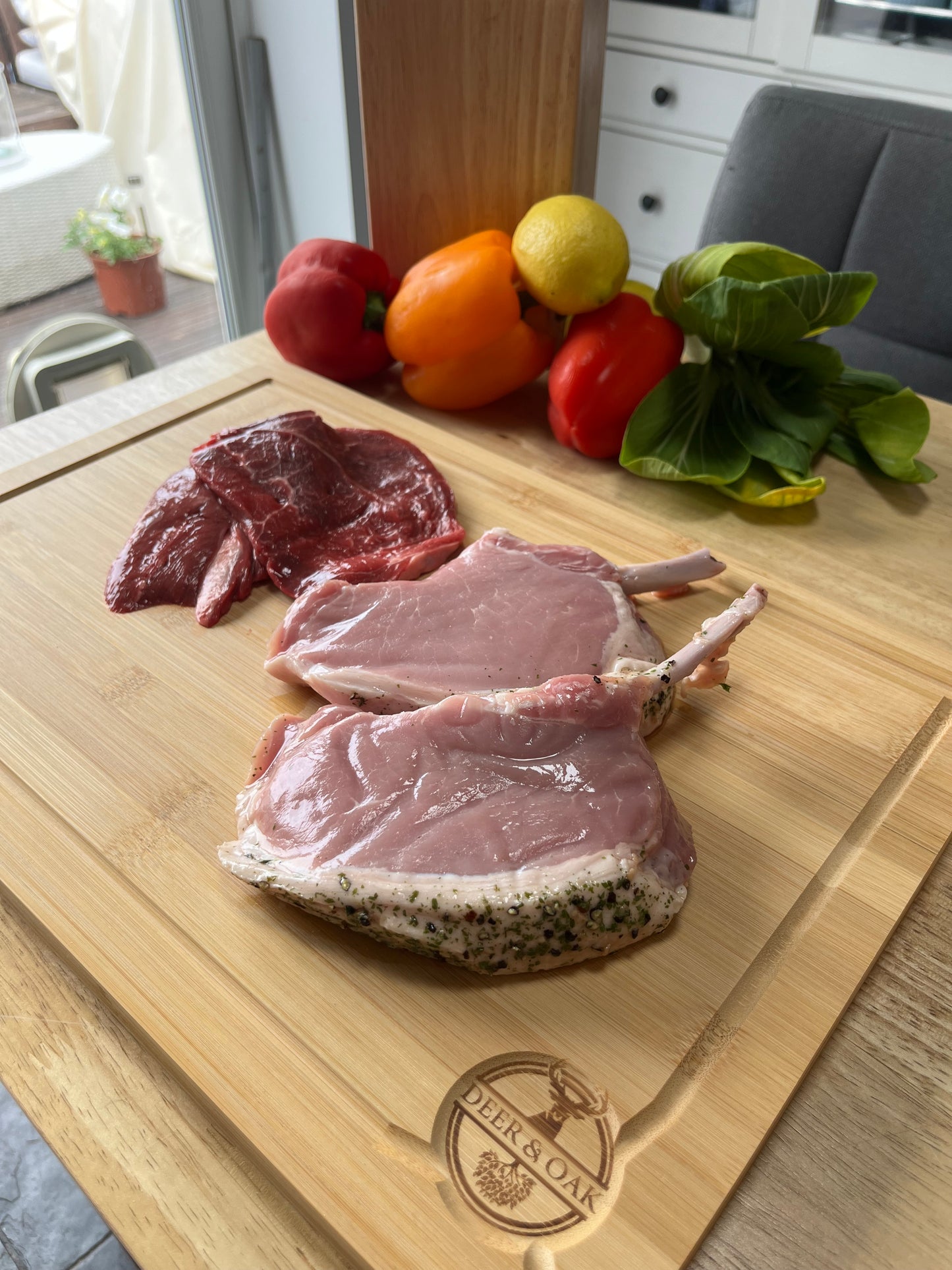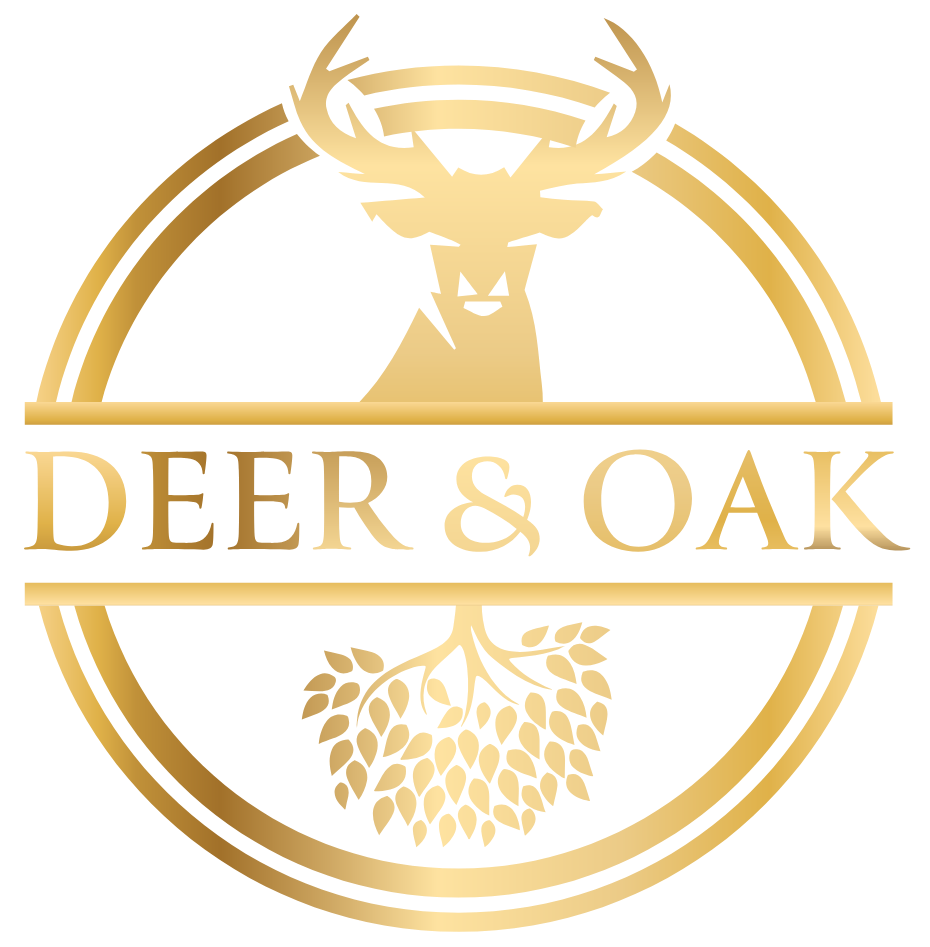
Which Chopping Board is Best?
Choosing the right chopping board is essential for both your kitchen's functionality and hygiene. With so many options available, it can be challenging to determine which type of chopping board best suits your needs. This article will explore the various types of chopping boards, their pros and cons, and why bamboo emerges as the top choice. We will also recommend the Deer & Oak Bamboo Chopping Board as an excellent example.
Types of Chopping Boards
Chopping boards come in several materials, each with unique benefits and drawbacks. The main types are wood, bamboo, plastic, and glass.
- Wood Chopping Boards
- Bamboo Chopping Boards
- Plastic Chopping Boards
- Glass Chopping Boards
Criteria for Choosing a Chopping Board
When selecting a chopping board, consider the following criteria:
- Durability: How well does the board withstand regular use?
- Maintenance: How easy is it to clean and maintain the board?
- Hygiene: Does the board prevent bacteria growth?
- Eco-friendliness: Is the board made from sustainable materials?
- Aesthetic Appeal: Does the board look good in your kitchen?
Pros and Cons of Wood Chopping Boards
Advantages:
- Durable and long-lasting
- Self-healing properties, as wood fibres close up after cutting
- Gentle on knives, preserving their sharpness
Disadvantages:
- Requires regular maintenance, such as oiling
- Can be heavy and cumbersome
- Prone to absorbing odours and stains
Pros and Cons of Bamboo Chopping Boards
Advantages:
- Highly durable and resistant to knife marks
- Eco-friendly, as bamboo is a fast-growing, renewable resource
- Naturally antibacterial, promoting better hygiene
- Lightweight and easy to handle
Disadvantages:
- Requires regular maintenance, such as oiling
- Higher initial cost compared to some other materials
Pros and Cons of Plastic Chopping Boards
Advantages:
- Lightweight and easy to handle
- Dishwasher safe, making them easy to clean
- Inexpensive and widely available
Disadvantages:
- Prone to knife marks, which can harbour bacteria
- Not environmentally friendly, contributing to plastic waste
- Can dull knives over time
Pros and Cons of Glass Chopping Boards
Advantages:
- Extremely hygienic and easy to clean
- Non-porous surface prevents bacteria growth
- Visually appealing and available in various designs
Disadvantages:
- Very hard on knives, causing them to dull quickly
- Risk of breaking or shattering
- Can be noisy and uncomfortable to use
Why Bamboo is the Best Choice
When considering all the criteria, bamboo stands out as the best choice for chopping boards. Bamboo's eco-friendliness is unmatched, as it is a rapidly renewable resource that does not require replanting. It is also highly durable, resisting knife marks and maintaining its integrity over time. Bamboo's natural antibacterial properties make it a hygienic option, and its lightweight nature makes it easy to handle and maintain.
Recommended Bamboo Chopping Board
For those looking for a high-quality bamboo chopping board, the Deer & Oak Bamboo Chopping Board is an excellent choice. This board combines all the benefits of bamboo with superior craftsmanship. It is designed to be durable, easy to maintain, and aesthetically pleasing, making it a perfect addition to any kitchen.
Maintenance Tips for Bamboo Chopping Boards
To ensure your bamboo chopping board lasts as long as possible, follow these maintenance tips:
- Cleaning: After each use, wash the board with warm water and mild soap. Avoid soaking it in water, as this can cause the bamboo to warp or crack. Rinse thoroughly and dry immediately.
- Oiling: Regularly oil your bamboo chopping board to keep it hydrated and prevent it from drying out. Use a food-safe oil, such as mineral oil or the Deer & Oak Premium Chopping Board Oil, and apply it in an even coat. Allow the oil to soak in and wipe off any excess.
Customer Reviews and Testimonials
Customers who have used the Deer & Oak Bamboo Chopping Board report high satisfaction with its performance. They praise its durability, ease of maintenance, and attractive appearance. Many users appreciate the board's resistance to knife marks and its hygienic properties, noting that it remains in excellent condition even after extensive use.
Conclusion
When it comes to choosing the best chopping board, bamboo is the clear winner. Its combination of eco-friendliness, durability, hygiene, and aesthetic appeal makes it the ideal choice for any kitchen. The Deer & Oak Bamboo Chopping Board exemplifies these qualities, offering a reliable and attractive option for all your chopping needs. Invest in a bamboo chopping board today to enjoy these benefits and enhance your culinary experience.
FAQs
-
What makes bamboo chopping boards eco-friendly?
- Bamboo is a fast-growing, renewable resource that does not require replanting after harvesting, making it highly sustainable.
-
How often should I oil my bamboo chopping board?
- Ideally, you should oil your bamboo chopping board once a month or when it starts to look dry.
-
Can I put my bamboo chopping board in the dishwasher?
- No, it’s best to hand wash bamboo chopping boards to prevent warping and cracking.
-
Is a bamboo chopping board safe for cutting all types of food?
- Yes, bamboo chopping boards are safe and hygienic for cutting all types of food, including meat, vegetables, and fruits.
-
What is the best oil to use for maintaining a bamboo chopping board?
- Use a food-safe oil such as mineral oil or a specially formulated chopping board oil like Deer & Oak Premium Chopping Board Oil.
Deer & Oak Bamboo Chopping Board and Chopping Board Oil are available at Amazon UK and deerandoak.co.uk
